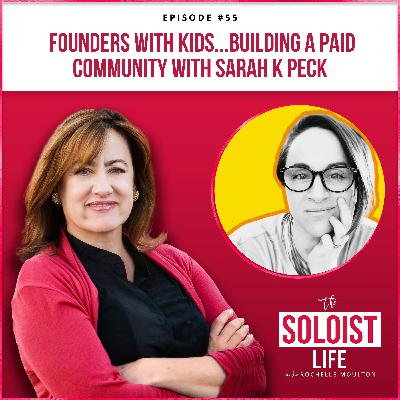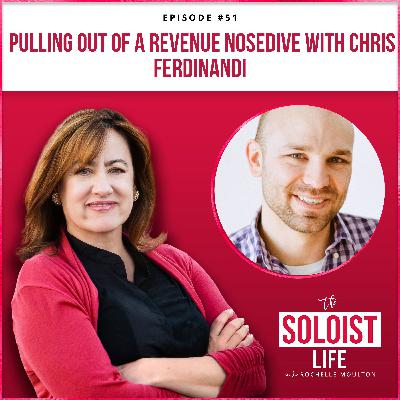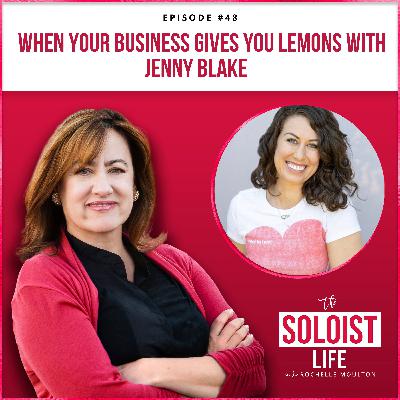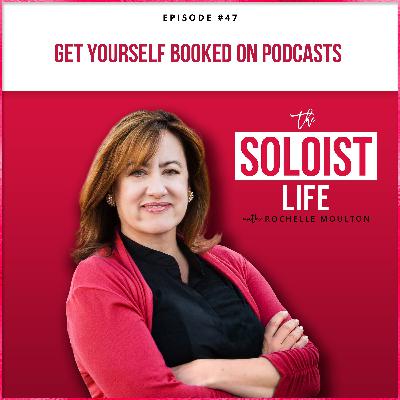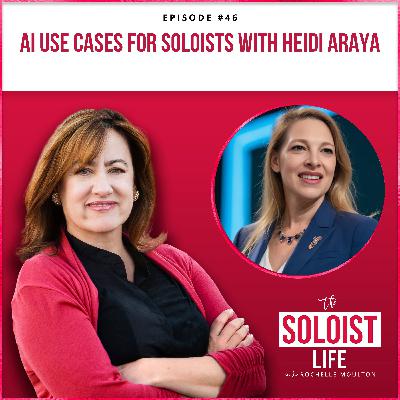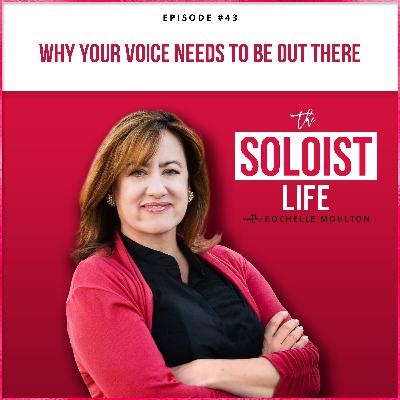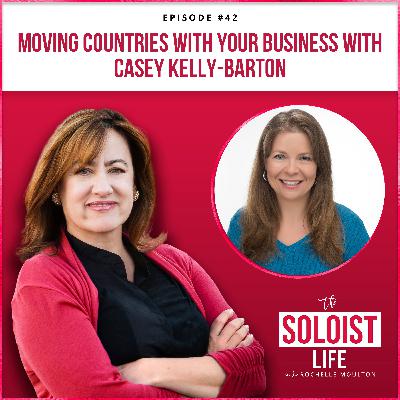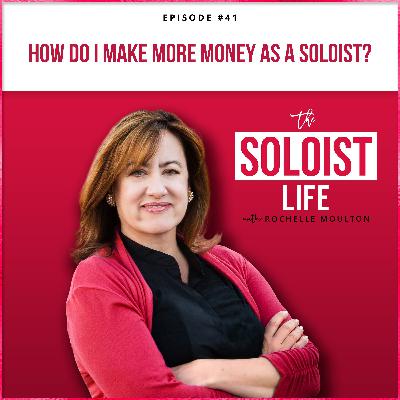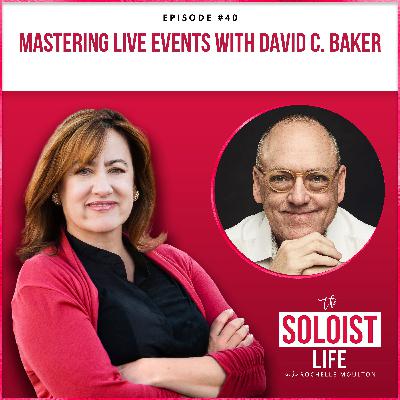Making More and Working Less with Jonathan Stark
Description
How can you work less and make more than you are right now? There is a glide path if you’re willing to experiment insists Jonathan Stark, author of Hourly Billing Is Nuts. Yes, the dynamic Business of Authority duo is baaaaaaaaack for an episode:
Two experiments to try if you’re currently billing by the hour and want to explore alternatives.
How to start thinking about value vs. time, especially when you hit the maximum number of hours you are able—or want—to work.
What options to consider to ratchet up your revenue past the low 6 figures—and how to think about the audience or transformations you’ll need to deliver to get there.
Why being a “ruthless” minimalist can keep your business easy to run and avoid time sucks.
Exploring—and testing—ways to use AI right now in your expertise business.
LINKS
Jonathan Stark Website | LinkedIn
Rochelle Moulton Email List | LinkedIn | Twitter | Instagram
BIO
Jonathan Stark is a former software developer who is on a mission to rid the world of hourly billing. He is the author of Hourly Billing Is Nuts, the host of Ditching Hourly, and writes a daily newsletter on pricing for independent professionals.
BOOK A STRATEGY CALL WITH ROCHELLE
RESOURCES FOR SOLOISTS
Join the Soloist email list: helping thousands of Soloist Consultants smash through their revenue plateau.
Soloist Events: in-person events for Soloists to gather and learn.
The Soloist Women community: a place to connect with like-minded women (and join a channel dedicated to your revenue level).
The Authority Code: How to Position, Monetize and Sell Your Expertise: equal parts bible, blueprint and bushido. How to think like, become—and remain—an authority.
TRANSCRIPT
Jonathan Stark: As you're growing your audience and you've got just more people aware of what you're doing, you can deliver smaller bits of value at a lower price, but a way lower cost. If you've got enough of an audience, then that completely support you. The classic example is like if you have a bestselling book. So if somebody goes to Amazon, they buy the book, they read the book, you're not involved. The author doesn't even know about you. And if you sell enough of them, if the audience is big enough, you can live like a king off of that.
Jonathan Stark: It's a great example of the kind of thing where you're delivering a little bit of value for 20 bucks to 10 million people and it's like, oh, that's pretty cool
Rochelle Moulton: Hello hello Welcome to this soloist life podcast where we're all about turning your expertise into wealth and impact. I'm Rochelle Moulton, and today we have a special surprise guest, my buddy Jonathan Stark.
Jonathan Stark: Hello. It's great to be back.
Rochelle Moulton: Awesome. And I'm in charge of the controls, which is like super fun.
Jonathan Stark: No
Rochelle Moulton: pressure. So, let me do an intro so people who don't know who you are will know. And Jonathan is a former software developer who's on a mission to rid the world of hourly billing. He is the author of Hourly Billing is Nuts, the host of Ditching Hourly, and writes a daily newsletter on pricing for independent professionals. He is also a former co-host with moi of the Business of Authority. So, Jonathan, welcome.
Jonathan Stark: Great to be here. Thanks for having me.
Rochelle Moulton: I just had somebody tell me yesterday and then somebody else this morning how much they missed TBOA and I had to bite my tongue not to tell them we were recording this episode today.
Jonathan Stark: Yeah, it's like smartless. You have to reveal
Rochelle Moulton: How fun to have the duo back in action, right?
Jonathan Stark: Yeah, yeah, it's great. It feels like riding a bike already. I know.
Rochelle Moulton: Well, listen, I wanted to have you on the show. You are actually the last guest of season 2 before we take a summer break. So we can talk about making more and working less, which is kind of your theme. And it seems kind of like a good summer topic.
Jonathan Stark: Yeah. Yeah, exactly. Working way less and you're taking a break, which is smart.
Rochelle Moulton: Exactly. Well, so first, Catch us up on what you've been doing since we wrapped TBOA in April. Like, are you simmering on another podcast, working on new products? Like, what are you doing with all that extra time you have back?
Jonathan Stark: Yeah, I've been experimenting with lots of different things, purposely trying to keep myself busy and spending maximum time in my sort of genius zone doing fun stuff because it's sort of a response to 2023 which was kind of boring work wise. I had things really automated and I was subconsciously optimizing to work as little as possible. I got down too far and ended up spending most of my time doing stuff that I think at, which doesn't make me feel that great. So this year I was consciously planning to experiment with more fun stuff, get a little
Jonathan Stark: bit busier, but in that time, purposely spend doing things, a lot of writing, but also launching things and creating new offerings and all different stuff. So I have a lot of irons in the fire right now and it's been exactly as hoped and extremely fun.
Rochelle Moulton: Well, I saw you on LinkedIn and my eyes like bugged out of my head because I know you hated going there.
Jonathan Stark: Yeah, I've been anti-social media for probably 8 years. I've been basically off of social media. The only thing I did was syndicate my daily email posts on a dozen platforms, but I didn't engage. I didn't really do anything there, and I have the results to show for it, which I would get just no engagement whatsoever on any of those automated posts. I'd be like if I got 80 impressions on a LinkedIn post that was just like a title and a link to my blog, the blog version of my email list. So that wasn't doing anything. But
Jonathan Stark: so 1 of the things I did, it was after we decided to shutter TVA away. I was like, my mailing list has been hovering around 10,000 for a long time. Partially because I'm an aggressive pruner. I like to have my open rate around 50%, so I prune people that haven't been opening a lot. But it was more than that. I just felt like I was talking to the same group of people, which is great, but I wanted to get the message to rid the world of hourly billing. I want that mission to grow, So I wanted
Jonathan Stark: to get more people on the list. I had experimented with a bunch of different things like YouTube and other podcasts and guesting on other podcasts. I was like, I'm seeing people getting really good results on LinkedIn. It's the least offensive platform to me. And so I took it, I don't know how long it's been, maybe 2 months ago, I started to take it really seriously. I researched 2 or 3 different people that were having, you can see they have tons of followers, you can see they get tons of engagement. I'm like, well, if I believe that
Jonathan Stark: that translates into more people on the mailing list and more people joining me on the mission, if I believe that, then okay, let's just posit that that's true, that those are good leading indicators for my ultimate goal. How do I take this seriously and really do it right or at least effectively? And holy mackerel, it really works. When you actually engage with people, imagine social media be social. LinkedIn wants their users to behave a certain way and that's no surprise it doesn't take a rocket scientist to figure out what they want. They want you engaging in
Jonathan Stark: sharing good content and attracting more people to their platform. They don't want you linking off of the platform. They want you engaging in other people's comments. So, you know, basically I spend maybe half an hour to 45 minutes, Monday through Friday, chatting with people who care about whatever I posted, which turns out to be pretty fun.
Rochelle Moulton: Have you seen it translate into email subscribers or is it too soon to tell? What do you think?
Jo





